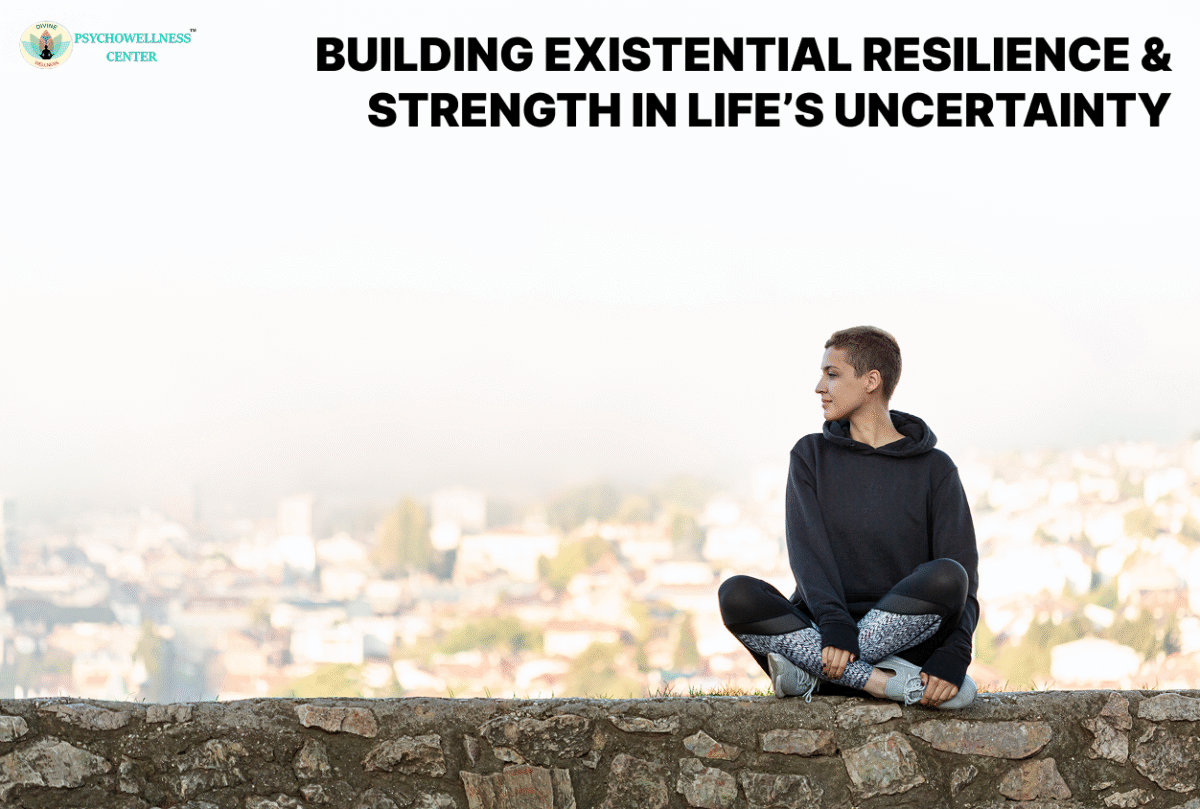Life is unpredictable. No matter how carefully we plan, we are bound to encounter moments of loss, confusion, failure, illness, or change. These experiences can shake our foundations, leaving us anxious, disoriented, and emotionally vulnerable. But while uncertainty is inevitable, how we respond to it can define our well-being.
Existential resilience refers to the psychological strength that allows individuals to face life’s inherent uncertainties, paradoxes, and losses with courage, flexibility, and purpose. It draws from existential psychology, which explores questions of meaning, mortality, freedom, isolation, and identity. Unlike surface-level positivity or rigid optimism, existential resilience embraces discomfort and ambiguity as natural parts of the human condition.
What Is Existential Resilience?
Rooted in the works of Viktor Frankl, Irvin Yalom, and Rollo May, existential psychology acknowledges that suffering is part of life—but also that we can find meaning, agency, and strength even in the darkest moments.
Existential resilience is not about removing fear or uncertainty. Instead, it’s about learning to tolerate and work with them—developing an internal capacity to ask, “What now?” instead of “Why me?” when life doesn’t go according to plan.
Key psychological components include:
- Meaning-making in times of loss or crisis
- Self-transcendence (looking beyond the self)
- Authenticity and value-driven living
- Tolerance of ambiguity
- Acceptance of mortality and impermanence
This kind of resilience doesn’t just bounce back—it transforms.
1. Embrace Uncertainty as a Teacher
Uncertainty often evokes stress and anxiety because the brain craves predictability and control. The amygdala (our threat detection system) becomes activated when the future feels ambiguous, interpreting uncertainty as danger.
But uncertainty is also a space for growth. It forces us to question old patterns, re-evaluate our priorities, and build inner resources. Existential resilience begins when we stop resisting the unknown and start engaging with it intentionally.
Action tip:
Practice cognitive reframing. Instead of thinking, “I don’t know what’s going to happen,” say, “This is an opportunity to learn who I am when I don’t have all the answers.”
2.Build Meaning, Not Just Goals
Modern life often emphasises achievement over purpose. But when external markers of success are lost—like jobs, relationships, or roles—people can spiral into existential despair.
Psychiatrist Viktor Frankl, in his seminal work Man’s Search for Meaning, argued that meaning is the primary motivator of human life. Even in suffering, people can find purpose. This insight is the foundation of logotherapy, a form of existential therapy that encourages individuals to find personal meaning in all circumstances.
Action tip:
Reflect on these questions:
- What values matter most to me?
- What is this experience teaching me about who I want to become?
3.Develop Psychological Flexibility
Psychological flexibility—a central idea in Acceptance and Commitment Therapy (ACT)—is the ability to adapt your behaviour in alignment with your values, even in the face of difficult thoughts and emotions. This involves:
- Accepting discomfort without avoidance
- Mindfully staying present
- Choosing value-based actions
Rather than obsessing over “fixing” life’s uncertainties, focus on how you respond to them. This creates a sense of empowerment amidst the unknown.
- Action tip:
- When facing a stressful situation, ask yourself:
- What emotion am I experiencing right now?
- What action can I take that reflects my values?
- Cultivate Existential Awareness
Many people move through life unconsciously, avoiding thoughts of death, ageing, or failure. But by facing these realities, we expand our freedom. Existential awareness sharpens our sense of time, deepens our relationships, and helps us live more intentionally.
Irvin Yalom, a pioneer in existential psychotherapy, notes that awareness of mortality can be a wake-up call—a chance to live more fully.
Action tip:
Try a “mortality meditation.” Reflect on the finite nature of life—not to create fear, but to refocus your energy on what truly matters.
5.Strengthen Social and Spiritual Anchors
Uncertainty feels less overwhelming when we’re connected. Attachment theory shows that secure relationships help us regulate emotions and reduce existential anxiety. Similarly, spirituality or a connection to something greater than oneself (nature, God, humanity) can buffer against feelings of isolation and meaninglessness.
Action tip:
- Cultivate relationships that allow for vulnerability
- Engage in communities or spiritual practices that align with your beliefs
- Practice gratitude—it strengthens social bonds and reinforces meaning
6.Seek Existential-Informed Therapy
Working with a psychologist or mental health professional who understands existential themes can help you explore life’s deeper questions in a safe, structured environment. Modalities like logotherapy, ACT, existential-humanistic therapy, and mindfulness therapy approaches are particularly helpful.
If you’re searching for the best psychologist near me, consider platforms like TalktoAngel or centres such as Psychowellness Center in Delhi, which provide therapy tailored to existential and emotional concerns.
Conclusion: The Strength in Surrender
The goal of existential resilience is to have the inner strength to live with the questions, not to have all the solutions. It’s about choosing to stand firmly in uncertainty, anchored by your values, and willing to keep going even when the path is unclear. In a world that constantly changes, those who can adapt, find meaning, and stay connected to their inner truths will not only survive—but thrive.
Contribution: Dr. R.K. Suri, Clinical Psychologist, and Ms. Mansi, Counselling Psychologist
References
- Frankl, V. E. (2006). Man’s search for meaning. Beacon Press. (Original work published 1946)
- Hayes, S. C., Strosahl, K. D., & Wilson, K. G. (2011). Acceptance and commitment therapy: The process and practice of mindful change (2nd ed.). Guilford Press.
- Yalom, I. D. (1980). Existential psychotherapy. Basic Books.
- https://www.psychowellnesscenter.com/Blog/promoting-emotional-processing-resilience-and-empowerment/

